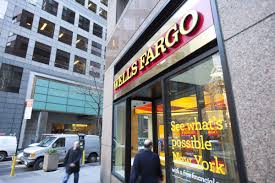Other American banks may have misbehaved as Wells Fargo did. Which ones?

IF THERE is a single example of how dramatically the regulatory environment has changed for American banks in the past 18 months, it may be the trickle of information that has recently emerged about an inquiry into their sales practices. The Office of the Comptroller of the Currency (OCC), a banking watchdog, began it in 2016 after widespread malpractice was uncovered at Wells Fargo, one of the country’s biggest banks. It ended the inquiry quietly by writing to several banks on June 4th; it sent the letters to Congress on June 11th. The public learned of the probe only because of diligent reporting by American Banker, a trade publication which appears to have gleaned its information mainly from banking consultants.
The OCC responded to American Banker’s report by releasing enough information to suggest that some banks were guilty of at least minor jiggery-pokery. It confirmed as much in testy exchanges between the comptroller, Joseph Otting, and members of the House of Representatives Financial Services Committee on June 13th. The inquiry encompassed more than 40 large and medium-sized banks and covered three years of activity. The banks had opened 10,000 accounts without customers’ permission, the same offence (though on a much smaller scale) as at the heart of the Wells Fargo affair.
The OCC blamed “short-term sales promotions” with poor controls, “deficient account opening and closing procedures”, “employee misconduct” and bad technology. Remedies included refunding fees, closing unwanted accounts and correcting information misreported to credit bureaus. Banks changed procedures. Over 250 such fixes were required. But beyond this aggregate information, the OCC has published nothing—naming no banks, not saying whether any were penalised financially, nor whether malpractice was concentrated among a few or was widespread.
Banks had much to grumble about under Barack Obama. Their sins were broadcast and they paid heavy fines, yet because they settled with regulators out of court, allegations went unproven. Under Mr Otting, Donald Trump’s appointee, the OCC seems to be trying a very different approach. Unless they had fees refunded or ghost accounts closed, not even customers were told of the dodgy practices.
One Democratic congresswoman, Carolyn Maloney of New York, asked why the OCC had not broadened its inquiry to other banks and called its failure to take public action “deeply disturbing”. Stephen Lynch, also a Democrat, from Massachusetts, said that by failing to provide public accountability and thus lumping the good with the bad, the review created moral hazard. After The Economist went to press, Mr Otting was due at a similar hearing before the Senate Banking Committee, where he could expect more acute discomfort. State attorneys-general and class-action attorneys are doubtless pondering lawsuits.
For many years, Wells Fargo was considered to be a model bank—thanks largely to its prowess in persuading customers to open new accounts. The ghost-account scandal put paid to that. It would be no surprise if others had chosen to emulate its virtues—and adopted its vices, too.
This article appeared in the Finance and economics section of the print edition under the headline “Under the rug”









